Kenneth A. Camp's Blog, page 7
October 16, 2017
Will You Become a Patron?
I began blogging in 2013 not knowing what I was doing. The reason I began was simple. I wanted to begin a new career as a writer. And, I needed to learn how to write. I wrote and published my first book that year, Adopting the Father’s Heart. Starting a blog not only helped me write better, but also it helped me promote my book.
Now over four years later, I continue to blog (hopefully getting better at it), I published a second book (Foster and Adoptive Parenting: Authentic Stories that Will Inspire and Encourage Parenting with Connection), and I began podcasting.
I begin most podcast episodes saying that the purpose for the podcast is to encourage, equip, even compel you to live a life on mission. I believe that God has a purpose for every one of us. We just don’t always know what that purpose is, or we lose sight of what it is. When this happens our lives become unfulfilling, and we tend to wander aimlessly through life.
No one wants to live life without purpose whether they realize that or not.
That is what inspires me to blog, to write, and to podcast. Most of my podcasts are interviews where I ask people to share their stories of how they live life on mission. Some are missionaries in foreign lands. Others are foster or adoptive parents. Many lead organizations focused on living life with purpose. Some are simply embracing the gifts God granted them so they can impact others.
These stories encourage and compel us all to live our lives with more purpose.
Many interviews help equip us to live a life on mission whether it is a professional in the foster/adoptive world or an expert about foreign mission work, or a conversation that Danielle and I have about what we are learning.
Everything I do I fund myself including the publishing of both books, the blog, and the podcast. I am passionate about creating content that effectively encourages and equips.
Now I want to invite you into an opportunity to invest in this work.
You might not have the time or interest in writing, blogging, podcasting, or other forms of content, but you want to give funding to get more and better quality to those who want and need it.
On October 24th I am launching a Patreon site where you can become a Patron of my work, specifically His Hands His Feet podcast. At least that is where I will initially apply your investment.
What is a Patreon site? Shhh…Don’t tell anyone yet. Here is your sneak peek at my Patreon site, so you can get a look for yourself:
https://www.patreon.com/KennethACamp
In a nutshell, this site gives you the opportunity to make a monthly pledge. Your pledge does a few cool things:
Shows appreciation for the content I already create.
Provides funds to increase the quality and type of content.
Gives you exclusive access to patron-only content. Some of this exclusive is already on the site.
As an introductory promotion, the monthly pledge for my founding patrons is only $1 per month!
Don’t wait though! This introductory promotion won’t last forever. In fact it is only good through the end of December 2017.
Check it out today at https://www.patreon.com/KennethACamp.
Poke around and see what the site is about, see if you can find anything that doesn’t work or anything that doesn’t make sense. Give me feedback. You can even go ahead and sign up as a Patron (if that doesn’t work, please let me know!).
Then when I give you the green light, share this opportunity with all your friends when I launch on October 24.
I appreciate you. Not just for engaging me here, but more so for your passion and desire to live a life on mission. You and I are alike. We are a part of the same tribe. You inspire and encourage me.
I look forward to hearing back from you.
October 9, 2017
Why Your Prayers Won’t Get Off the Ground
If you are a Christian who goes to church all the time, who not only loudly sings worship songs at church but also always has your radio or Pandora tune into worship channels, who loves to read books and commentaries to learn more about God, who strives to always follow God’s laws and to honor Him—this is for you.

I bet you are a person who always asks, “What is the right thing to do?”, and you want God on your side.
This is for you especially if you strive to live life like this, but you wonder with bewilderment why your prayers go unanswered, and if your prayers even get off the ground.
You wonder if God even notices you.
God gave Isaiah a word several thousand years ago and it is recorded in Isaiah 58 (one of my favorite chapters that I to define my walk with God).
As it says in Isaiah 58, here is why our prayers often don’t get off the ground:
The bottom line on your ‘fast days’ is profit. You drive your employees too hard. You fast, but at the same time you bicker and fight…Do you think this is the kid of fast day I’m after: a day to show off humility? To put on a pious long face and parade around solemnly in black?
This is the kind of fast day I’m after:
To break the chains of injustice, get rid of exploitation in the workplace, free the oppressed, cancel debts.
What I am interested in seeing you do is: sharing your food with the hungry, event the homeless poor into your homes, putting clothes on the shivering ill-clad, being available to your own families.
Do this and the lights will turn on, and your lives will turn around at once. Your righteousness will pave your way. The God of glory will secure your passage.
Then when you pray, God will answer. You’ll call out for help and I’ll say, ‘Here I am.’ —Isaiah 58:3-9
If you haven’t already…open your Bible and read all of Isaiah 58.
I am guilty of living how Isaiah describes in the first part of this passage. I look forward to worship experiences like some do a sporting event or concert. I can geek out on dissecting what a word from a bible passage means. I will study a section of God’s word just I can understand it better.
Then I will bicker and fight with my wife. I will impatiently respond to a business acquaintance or a service provider. I will ignore those around me in need, including those who are in my family, both biological and spiritual. If I do notice those in need, I rationalize why I don’t have time or how someone else will or is meeting their need.
Then I wonder why God doesn’t answer me when I call on Him. My prayers feel hollow and lack the potency to even reach the ceiling of my room much less the heavens.
Lord, may I hide your words in my heart so that I might follow your ways.
October 2, 2017
Warning: Your Possessions Own You
When Danielle and I returned from living in Thailand for six months, we swore to not let the American consumer culture pull us back into its vortex. Those six months in Thailand showed us that our possessions didn’t dictate our happiness level. I think we unknowingly went through a six month detox.

When we moved back to America, a window of opportunity existed. We easily could have sold everything we owned and moved back to Thailand. In fact we planned on that. But God had a different plan, and we remained in the U.S.
Ten years after living in Thailand an honest self analysis tells me that I have not been very successful at avoiding the consumeristic mindset.
Here are some results of my self analysis:
I keep reorganizing my stuff. Yes I throw some things away, but mostly I just look for a “better” place to store it just in case I need it some day.
I get excited to see what the new stores are going in at a new shopping center about five minutes from our house. I don’t even enjoy shopping!
When I go to a home improvement store, I end up spending more time than planned looking at things I “need”.
It bothers me when someone damages something that I own.
I feel a sense of pride when someone comments on one of my prize possessions.
I can keep going on, but I think you get the idea. I could have done and did do those same things when we lived in Thailand, but the longer we lived there, the less that was true.
What does this have to do with living a life on mission? A lot. When I first began blogging, I wrote about living a minimalist lifestyle. A lifestyle that avoids accumulating more and more stuff. That is another thing I notice about my self analysis, I don’t write about that much anymore.
We slowly become desensitized to how our possessions become overly important to us. We squander the resources that God blesses us with somehow thinking that we are the owner of all our stuff rather than a steward.
Are you willing to do some self analysis with me? It will take some courage to do it, so I understand if you don’t want to do it. But if you will, think through these 5 questions:
How much time do you spend taking care of your possessions? That includes maintenance, reorganizing, or even simply looking at it.
How often do you go to a store just in case you see something you need? Or put it this way, do you use shopping as a way for escape or comfort?
What do you feel when someone breaks or damages something you own? How do you respond to that person?
Have you rented a storage unit for longer than one year? If so, do you remember what is in the storage unit?
Do you look at other people’s possessions and wish you had what they have?
Of course most, if not all, of us will always have possessions. I am not saying anything is wrong with that. The question is do these possessions own us, and if we are honest, the answer for most of us is yes. When our possessions own us, it is nearly impossible to live a life on mission.
One time a very wealthy man asked Jesus what he needed to do to follow Jesus. Jesus replied, “Sell everything you own and give it to the poor”. The man went away sad because he owned many possessions. Jesus’ reply isn’t a command for us all. Jesus knew that this man’s possessions owned him, and unless that changed, he never would follow Jesus or embrace the purpose for his life.
How would you respond if Jesus told you to do the same thing?
September 27, 2017
Helping Families in Crisis with Amy Curtis and Jennifer McCallum [Podcast 032]
Amy Curtis and Jennifer McCallum work with Buckner Children and Family Counseling Resources. Amy leads the counseling staff, and Jennifer is a post adoption counselor.
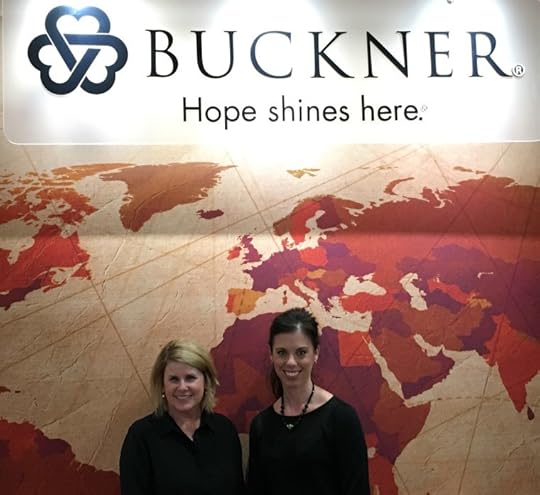
I heard Amy speak about helping families in crisis at a break out session at a conference, and I reached out to her to come onto my podcast so we could talk about this important subject.
Foster and adoptive families get lots of training and support while they are in the process of fostering or adopting. Friends and family express excitement about the pending adoption, then throw a big celebration when the day finally arrives. Then far too often the adoptive family is left to fend for themselves.
As an adoptive family struggles, red flags appear that sadly leads many down the road to disruption and dissolution. Disruption defines an adoption that fails before the adoption is final. Dissolution is an adoption that fails after the adoption is final.
Many studies done over the years reflect that around 10% or more adoptions end up either in disruption or dissolution. All this does is cause further harm for a child who has already suffered trauma.
I invite you to listen as we address the causes, red flags, and ways to avoid ending up being one of these statistics in this podcast interview.
Bio for Amy and Jennifer:
Jennifer McCallum, LPC, is the Lead Post Adoption Counselor with Buckner Children and Family Services’ Counseling program Jennifer’s educational background is in Human Development, Child Development, and Counseling. Jennifer has worked as a therapist serving adoptive families, foster families and kinship families. Prior to working in the field of adoption and foster care, Jennifer gained extensive experience working with Head Start as a family specialist, as a therapist with a psychiatric hospital, as a crisis line specialist and as a parenting class facilitator. Each position has been preparing her to manage the many, complex needs that adopted persons, parents, and birth parents face as they navigate life-long relationships.
Amy Curtis serves as Director of Counseling with Buckner Children and Family Services serving families and children throughout Buckner’s placement and permanency programs. She has worked in the field of adoption and foster care for over 30 years as a Licensed Social Worker and a Licensed Professional Counselor. Amy is also working on a Ph.D. in Marriage and Family Therapy, with a focus on attachment and trauma healing of adopted and foster teens and young adults, as well as focusing on the clinical needs of those most vulnerable globally.
Show Notes
Jennifer explains how she works with all members of the triad, the biological family, the adopted person, and the adoptive family.
Amy shares that she is an adoptee and an adoptive parent.
What is missing from post adoption counseling is a wholistic approach to all members of the triad.
People come together with very little information about each other.
Research shows that adoptive families tend to go into crisis 5-10 years after the adoption.
Amy and Jennifer share the red flags they see with families in crisis.
The nurture piece is missing.
Anger builds and isolation takes over.
Resentment creeps in about different things related to the adoption.
Amy—”Call me before you lose your compassion.”
When we go through stress our nervous system is impacted.
Parents can feel defensive as they reach out for help and support.
Ways people can support an adoptive family especially when they are in crisis.
Be aware that when a family is in crisis they go into isolation
Trauma informed care training is vital for everyone, not just adoptive families.
Don’t allow foster and adoptive ministries within a church to exist in isolation.
As a friend, don’t hesitate to step in and offer help.
Adoptive families need to have a real-life support group, not just an online internet group.
Placing agencies should pay attention to available resources in a community while placing a child in a family.
And much, much more!
Resources and Contact Information
Ready or Not: 30-Day Discovery for Families Growing Through Foster Care and Adoption by Pam Parish
Ready or Not for Battle Weary Parents by Pam Parish
Amy Curtis email – acurtis@buckner.org
September 25, 2017
5 Areas of Need in Foster Care and Adoption*
Have you considered what need in foster care or adoption you can meet? Or are you like I was a few years ago? I really had no idea of what foster care really was. And my thoughts about adoption completely focused on me and my wish to have a child of my own. I naively thought that if I weren’t interested in fostering or adopting then it was of no concern to me. I had a shallow understanding of the needs of foster care and adoption.

If you don’t intend on meeting a need of foster care and adoption, you really should stop reading now. Seriously, because if you read more you will find a need you can and should meet.
Looks like you are still here. I am glad!
Here are the 5 Areas of Need in Foster Care and Adoption:
Foster Care. Do you know much about foster care? First thing to do is find out how many children are in the foster care system in your county. In the Greater Austin area on any given day over 1000 kids are the in the foster care system. Here are some more facts about foster care:
Foster homes are most needed for children six and over.
Foster children can move homes an average of seven times mainly because the foster family isn’t prepared to care for them.
Moving from home to home and inconsistent care can cause more harm than the original reason for removal.
Adoption. Did you know these things about adoption though foster care?
Minority children over the age of two have a greater of risk of never getting adopted and aging out of the system.
Hundreds of children are available for adoption right now in the foster care system. Many are sibling groups.
Adoption from the foster care system costs little or nothing.
Trauma informed care can help an adoptive parent help their child heal, no matter what the trauma is.
Biological Family Support. We need to take a wholistic view on meeting the needs of foster care and adoption. This includes supporting biological families. 70% of kids in foster care return to their biological family. Helping biological families heal and obtain parenting skills can stop the cycle of abuse and neglect.
Supporting Roles. Not everyone is called or compelled to foster or adopt. However, a greater need exists for people to fulfill other roles that meet the need of children and families.
Foster and adoptive families often isolate especially when crisis arise in the home.
Opportunities to support include local and national organizations like Court Appointed Special Advocate (CASA). You can also help families in your own community, church, small group, etc. with things like meals and yard work, babysitting and respite care, financial support for camps and other activities, prayer and mentorship.
Aged Out Teens. In Texas, a child in foster care can choose to remain in the custody of the state until age 21 or they can leave at age 18. Either way, these kids are now on their own without ever being a part of a forever family. Statistics for their success in life are not favorable with many ending up homeless or in prison continuing the cycle of abuse and neglect. You can help put an end to this cycle of failure by establishing a long term relationship with a child in foster care or one who recently aged out of the system.
*borrowed from Fostering Hope Austin (https://www.fosteringhopeaustin.org/start-a-ministry/)
You have more information about five areas of need in foster care and adoption. The question is what role do you play?
To help you explore further some of the needs mentioned here are some links for you:
Why should you care?
Finding where you can meet a need in foster care and adoption impacts more than a child if that is not reason enough. But every time someone meets a need in one or more of these areas, destinies change, generations alter, and communities strengthen.
Surely you can find a need to meet that will change the destiny of a generation.
September 19, 2017
The Only Way We Will Ever Embrace Our Diversity
Our culture overuses the word diversity. It is forced upon us in the workplace, in our conversations, and everywhere we do life. I bet you just focused on the wrong part of that statement. Diversity isn’t a bad thing. Having it forced upon us will never work though.

External pressure on anything that requires a heart change will always fail. Oh it might work for a short while, but then we always drift back to our default way of thinking.
The problem is our hearts. We will never embrace people who are different from we are when we have hearts of stone. Left to our own, our hearts will always treat others selfishly. We will always gravitate to those who think and act like we do. We will always shun, or do worse, those different from we are. Even man-made religion divides people into monogamous groups where everyone looks the same, has a similar economic status, and even thinks the same.
Only One Person truly embraces those who are different from Him. God. No one is like Him. Yes, He created us in His image, but we are still very different from He is. He transcends us. While we struggle with our differences, He embraces them. He left His perfect place and entered our craziness.
The cool thing is this: God promises to replace our hearts of stone with a heart of flesh. He will give us a new heart and deposit His spirit in us. He cleanses us from our selfish ways and causes us to walk in His ways.
When this happens we no longer seek out diversity as an obligation to fulfill some cultural norm. Rather we instinctively embrace others who are different from we are. We are compelled to step out of our cultural context and into those of others. We no longer are driven by what a person’s skin color is, how much they make, what part of the world they come from, what god they serve, or any other identifier. External pressure to include others morphs into an internal motivation caused by His heart within us.
Our thoughts about other people change from seeing them as unintelligent, lazy, mean, etc. to people with promise, family, dreams, and so on.
Why? Because that is who God is.
Are you willing to do some self-analysis?
Look at who you spend your time with and do life with. Do they all look, think, and believe like you do?
Do you feel obligated to embrace diversity?
Do you feel uneasy, even afraid, around people who are different from you?
If you answered yes to any of these questions, I encourage you to spend time with God and ask him to give you a heart of flesh.
For those of my friends who think I am advocating forfeiting what we believe as truth for the sake of embracing diversity, I am not. We don’t have to. Truth will aways be truth regardless of how we treat others. However, a heart of flesh doesn’t judge and condemn those who are different.
If we are going to rescue the fatherless, comfort the broken, and share the gospel with all people, we need to lean close to those who are different from we are.
The only way that will happen is if God truly changes our heart.
September 14, 2017
Chapter 1 and 2 of the Revised Version of Adopting the Father’s Heart [Podcast 31]
Read by Kenneth Camp
I am revising my first book, Adopting the Father’s Heart, for two reasons. Reason number one is I think I am a better writer than I was four years ago (at least I sure hope so). I have wanted to rewrite some sections of the book to make it better. Reason number two I want to add a couple of chapters that update the story. The narrative tells the story up through the adoption of our son. The added chapters will cover the post-adoption part of the story.
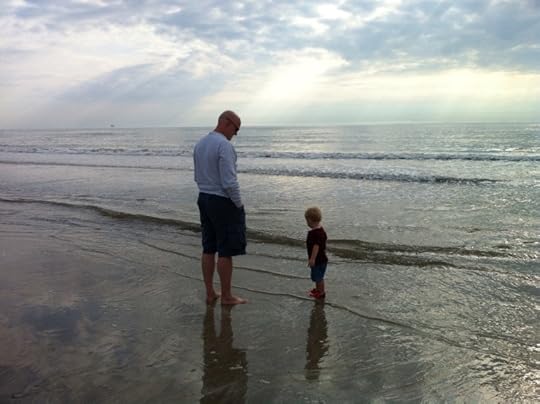
Once I finish the revision of the book, I will make it available on Amazon in ebook and print form. However, all my email subscribers will get a free .pdf copy of the revised book.
As I began revising, I decided that I wanted to also make an audio version of the book. That brings us to today’s podcast. In today’s episode I read the first two chapters of the revised version of Adopting the Father’s Heart. I realize that many have not read this book or even know that it exists, so this is your opportunity to hear it straight from me.
Hope you enjoy it!
Please share this especially with anyone you know who is considering foster care and adoption. It is a great book for them to listen to or read (when the revised version launches).
September 7, 2017
Energy Management Empowering World Missions with Colby May [Podcast 030]
Colby May is the founder and president of Lit International, a company that works with local churches to leverage energy savings, energy management, and sustainable principles in order to capture savings that these local churches can then redirect into world missions.
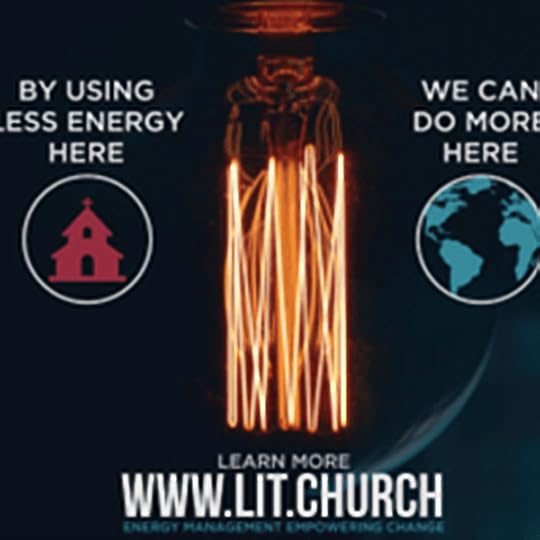
In this podcast episode, Colby goes into depth behind why he began this company including his passion for helping raise up indigenous pastors and missionaries around the world that can and will reach their own people. As Colby says, “If you want to change the hands, you have to change the heart.”
Show Notes
In the interview with Colby you will hear:
A little of his background, especially what led him to attend Gordon Conwell seminary. Here is a little hint…Colby wanted to understand why people do the things they do.
How Colby went from energy management to missions.
Colby gives us a great overview of his company, Lit.
He shares some eye opening stats from 2013.
The U.S. church tithed 50 billion.
The church spent 10 billion on energy to run facilities.
Guess how much churches gave to global missions in 2013?
The over all goal is to redirect 10-20% of money spent on utilities to missions.
According to the EPA about 30% of energy used is wasted.
Colby talks about training churches to have a proactive vs. a reactive approach to energy management.
Colby gets into how his job became his ministry.
Lit has a non profit component that funnels financial resources to indigenous missions in places like Congo, India, China, Myanmar, and Kenya.
Who needs to listen to this podcast?
Anyone who determines how a church, school, or other organization spends it energy funds and wants to capture savings to redirect to missions.
Anyone who is interested in business as mission.
Contact Info
Website – http://www.consultlit.com
Email – colby@consultlit.com
September 5, 2017
5 Sure Signs that You Have Forgotten Your Purpose
What happens to a tool or a piece of equipment when we no longer use it for its intended purpose?It begins to rust and decay. Or if we use the tool in a way contrary to its created purpose, we end up damaging it, sometimes beyond repair. However, when we keep using that tool or equipment the way the creator or manufacturer intended, it remains useful for many years.
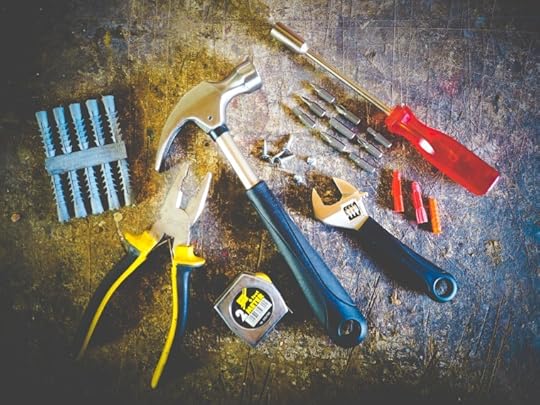
Our lives have an intended purpose just like a manufactured tool. A Creator made us with a purpose in mind, and when we don’t fulfill that purpose, we too, just like a tool, become useless over time. Of course we don’t rust, but I guess decay is inevitable for us all. We can become damaged though if we don’t adhere to our original design and purpose. Here are 5 things that happen to me when I forget my purpose or mission:
I strive against my purpose. In its purest form, striving is good. But striving against our purpose causes unrest and doesn’t fulfill. In fact we work harder than we have to need to do anything. When we use a tool outside of its original purpose, it often makes the job harder.
I panic. When I work outside my designed purpose, things seem to not work the way they should. I don’t have the results I should either, or at least think that I should. The longer I do this, the more I begin to panic. Most of us would not define our reaction to lack of results as panicked, but let’s define this word “panic”—alarm, anxiety, trepidation, agitation, and apprehension.
I begin to think it is all about me. When I strive, and then probably begin to panic in different ways, my focus shifts from my purpose or mission and onto me. I either think that I am the solution, or I think that I am the cause. Neither thought process serves me or anyone else any good. It really isn’t all about me.
I lose self-awareness. I find that much of the time I lack a healthy self-awareness. I don’t think that I am alone in this. Self-awareness simply means that one is conscious of their own character, feelings, motives, even their intended purpose. When this is lacking, it can point to a lack of purpose or mission.
I focus on tasks. Lots of job descriptions look for a person good at multi-tasking. Yet, God created us as relational beings. When we our purpose and mission is our focus, we have healthy, growing relationships. When we aren’t, we tend to withdraw from those relationships into our tasks.
When forget or lose sight of my purpose in life, I miss out on God’s best for me.
What is the alternative? First thing is to spend time finding out what your purpose is if you don’t know already. I have a free e-book for you if you want my thoughts on how to do that. Look at the end of this blog post or on the right column to grab that today.
If you do know what your purpose is already, then relax. Don’t get concerned about the results. Focus on the process and on the people. Keep your eyes on the mission and the Giver of that mission, especially when things get rocky.
I mentioned above that we can think that it’s all about us, then I talk about self-awareness. Seems like a contradiction. Bottom line is it helps to not think too highly of yourself but at the same time have a healthy understanding of your role and what you add to the mission.
Living a life on mission with purpose doesn’t always come natural for us. We need guidance and correction. We all tend to stray off course or lose our way from time to time.
Question: Do any of the 5 signs I list above describe you now? What can you do now so that you are living a life on mission with purpose?
August 30, 2017
Empowering Adoptive Families with Jen Reichert and Becky Wickes [Podcast 029]
Adoptive and foster families often complete tens of hours of required training in order to have a child placed in their family. Foster families continue required training in order to keep their license. However, once a family adopts a child, often they no longer continue training since it isn’t required.
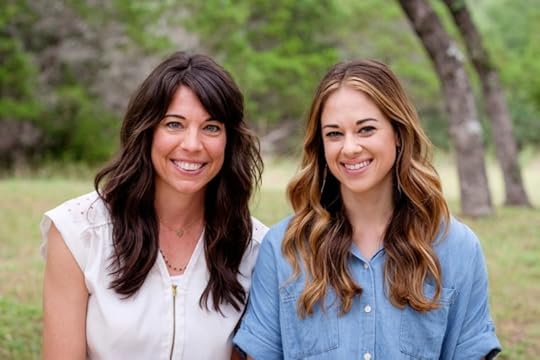
It isn’t uncommon for adoptive families, years after the adoption is final, to experience challenges, failure, and desperation. This is where support is greatly needed. Post-adoptive families need someone to come alongside them to encourage and empower them to finish the race well. Many times it is simply someone who is trauma informed and can reminder the parents of things they learned while in training, maybe years ago.
I met with Jen Reichert, founder of Stand Up Eight, and Becky Wickes, family coach with Stand Up Eight to hear more about their non profit. Stand Up Eight is a non profit program dedicated to empowering post-adoptive families for immediate and lasting change by providing trauma-informed behavior management intervention in their homes.
In this podcast, you get to hear from both Jen and Becky as they share their passion, expertise, and compassion for helping post adoptive families.
What you will hear in the podcast:
How Danielle and I know Jen from our training days.
How both Jen and Becky are uniquely qualified for what they are doing.
The meaning of the name “Stand Up Eight”.
Exactly what Jen and Becky do to empower post-adoptive families.
“One of the biggest needs…that (Jen) sees is needs families have after they adopt.”
Why Jen chose a non profit model.
“It’s not normal to know how to parent a traumatized kid…it takes support.”
Becky goes into detail how she works with families in their home.
How many families Stand Up Eight can work with at any given time.
If a family is going to provide a home for a traumatized kid, the home needs to be a safe place for healing.
Stand Up Eight charges family $200 per month that includes two home visits that last for one hour, unlimited communication, and even opportunities to work with the child’s school.
Becky gives a great in-depth definition of what trauma informed care means.
Hear why Jen is sleeping “great at night”.
If you are an adoptive family who lives in the Central Texas area, and you know you need the support Stand Up Eight can provide, please contact them now.
On another important note—Stand Up Eight raises funds to help alleviate the cost for post adoptive families. Not everyone is meant to adopt. But everyone can and should respond to the call to take care of vulnerable children. I fully recommend financially supporting Stand Up Eight as they empower adoptive families.
Contact Information
Stand Up Eight website—https://standupeightatx.org
Jen’s email—jen@standupeightatx.org
Facebook page—https://www.facebook.com/standupeightatx/ (A great brief video about Stand Up Eight on their FB page)
Did you like this podcast? If so, please share with it all your friends. AND go to iTunes, follow the podcast, and rate and review the podcast. Here is the link to the podcast in iTunes.
https://itunes.apple.com/us/podcast/his-hands-his-feet-podcast/id1165097533?mt=2
Thank you!



